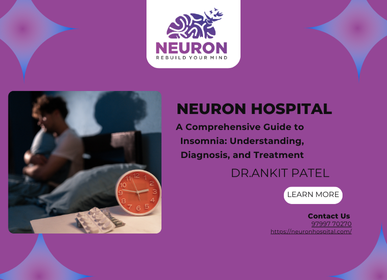Insomnia: A Common Sleep Disorder
Insomnia is a common sleep disorder characterised via problem falling asleep, staying asleep, or each. It can appreciably impact your high-quality of lifestyles, leading to daylight hours fatigue, irritability, and difficulty concentrating.
While it is a time-honored trouble, many humans don’t are searching for help, believing it’s a regular a part of getting older or stress.
Types of Insomnia : Explore Insomnia: Understanding, Diagnosis, & Treatment
1. Primary Insomnia: This takes place when the underlying reason of insomnia is unknown.
2. Secondary Insomnia: This is because of any other medical condition, medication, or substance abuse.
Symptoms of Insomnia
• Difficulty falling asleep
• Waking up frequently during the night
• Early morning awakening
• Feeling unrested after sleep
• Daytime sleepiness
• Difficulty concentrating
• Irritability
• Mood swings
• Increased accidents or errors
Causes : Explore Insomnia Understanding, Diagnosis, & Treatment
• Stress and Anxiety: Emotional distress can disrupt sleep patterns.
• Medical Conditions: Certain health conditions, such as coronary heart disorder, arthritis, and chronic ache, can intrude with sleep.
• Medications: Some medications can reason or worsen insomnia.
• Lifestyle Factors: Irregular sleep schedules, excessive caffeine or alcohol intake, and publicity to vibrant mild before mattress can make a contribution to insomnia.
• Sleep Apnea: A sickness where respiratory stops and begins at some stage in sleep can disrupt sleep.
Diagnosis of Insomnia
To diagnose insomnia, a doctor will typically behavior an intensive scientific history, bodily exam, and in all likelihood sleep studies. Sleep research can help discover underlying situations like sleep apnea.
Treatment for Insomnia
The quality treatment for insomnia depends on the underlying motive. However, a few common techniques consist of:
1. Lifestyle Changes:
o Consistent Sleep Schedule: Maintain a ordinary sleep-wake cycle.
O Create a Sleep-Conducive Environment: Ensure your bed room is dark, quiet, and funky.
O Limit Screen Time: Reduce publicity to electronic devices before bed.
O Manage Stress: Practice rest techniques like meditation, yoga, or deep respiration.
O Limit Caffeine and Alcohol: Avoid those substances, specifically close to bedtime.
O Exercise Regularly: Engage in bodily hobby however avoid excessive workout routines close to bedtime.
2. Over-the-Counter Sleep Aids:
o Diphenhydramine: A common component in lots of over-the-counter sleep aids. However, it may reason daytime drowsiness.
3. Prescription Sleep Medications:
o Hypnotics: These medicines will let you fall asleep or live asleep. However, they ought to be used below a medical doctor’s steering due to potential side outcomes and the threat of dependence.
4. Cognitive-Behavioral Therapy for Insomnia (CBT-I):
o This therapy enables individuals broaden healthful sleep conduct and cope with poor thoughts and ideals approximately sleep.
5. Addressing Underlying Conditions:
o If insomnia is due to every other medical condition, treating that situation can enhance sleep.
Seeking Help for Insomnia
If you’re suffering with insomnia, it’s critical to seek advice from a healthcare expert. They can assist decide the underlying purpose and endorse suitable remedy options.
Dr. Ankit Patel, a famend psychiatrist in Rajkot, India, offers comprehensive take care of insomnia and other mental health conditions. His expertise and compassionate method can assist individuals find comfort from sleep disturbances and enhance their general well-being.
Sources and associated content material
Address: 3rd, floor, Nana Mava Rd, opposite Saurashtra Children Hospital, Near Rajnagar Chowk, Shyam Nagar, Chandreshnagar, Rajkot, Gujarat 360005

